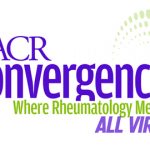In response to the COVID-19 pandemic, all rheumatology fellowship interviews conducted in the 2020 fellowship recruitment season were conducted in a virtual, video-based format to reduce the risks associated with travel and face-to-face meetings. In June 2020, the Coalition for Physician Accountability released guidance suggesting all programs commit to online-only interviews and recruitment events, even…







